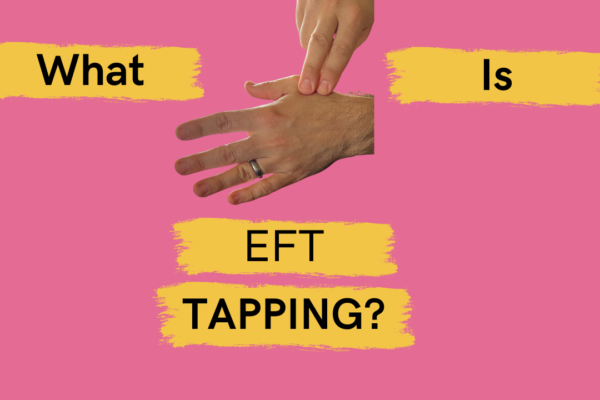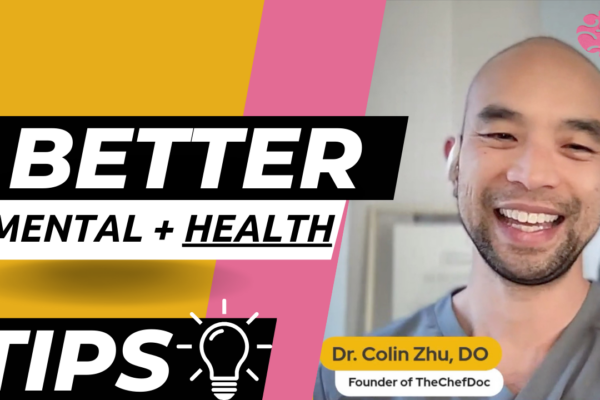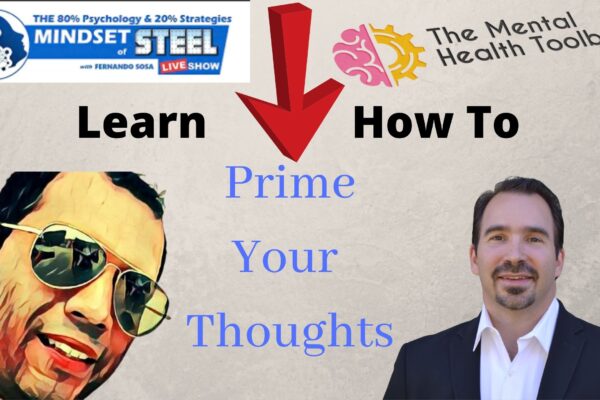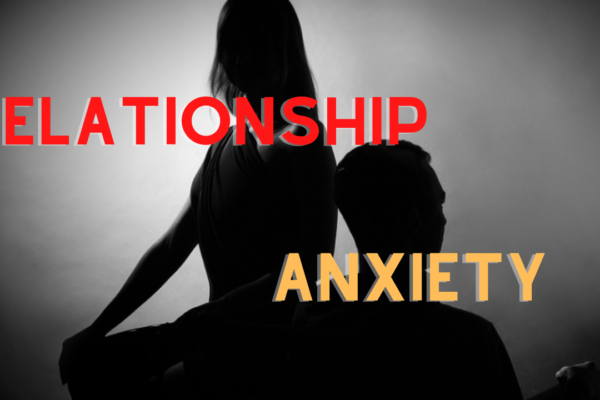Table of Contents
How To Cope With Depression in 12 Proven Steps: Step 1-
The fundamental coping skills for depression that I will be covering over the next several posts are derived from an evidenced-based practice of psychotherapy known as Cognitive Behavioral Therapy (CBT), in which I am certified to practice by the Academy of Cognitive Therapy. The first four skills/posts in this series will be centered around the connection between thoughts and emotions
For those who are not familiar with theoretical models or therapeutic interventions, an evidenced-based practice (EBP), is a term that describes “a best practice”; one that has been tested and researched and shown to be an effective treatment for a specific condition with results that are sustainable (the scientific method).
The Origin of Fundamental Coping Skills for Depression.
Aaron T. Beck is the father of Cognitive Behavioral Therapy, and the skills discussed in this series of posts are derived from his work (and his cohorts) which is/are referenced at the end of this article.
In this post, I will cover:
- The connection between thoughts and emotions.
- What a thought is, and what it is not.
- How to distinguish between unhealthy and healthy thoughts.
The Connection Between Thoughts and Emotions.
This category is the first of three pillars that encompass the fundamental coping skills for depression. The other two are the connection between your mood and your activity, and your mood and your relationships, respectively,
In the mental health world, there is a bit of debate as to the whole chicken and egg theory when it comes to thoughts and emotions, cause, and effect. One school of thought holds that our mood and/or emotions are derived as a direct result from our thoughts; this is the most popular viewpoint.
The other is just the opposite, or at least a mix of the two. In either case, when we are discussing coping skills for addressing mental health conditions like depression and anxiety, it is most useful to consider the former.
So, what is a thought exactly?
What a Thought is and What it is Not.
Managing our thoughts is the first of the fundamental cooping skills for depression and anxiety.
A thought is either a statement, or a question, or rather, a sentence we say to ourselves. Such as, “I will wear my red shoes today” or, “I feel tired.” These are simply statements, without any specific judgments attached, until we give them meaning.
Example: “I can’t wear my red shoes because they do not match my outfit, and if I do not match, then I will be judged by by friends ” (assumption).
Our feelings, or emotions, are varied. It is rather easy to identify our primary emotions, such as happiness, sadness, anger, remorse, guilt, shame. Our other emotions also have more subtle connotations, such as curious, suspicious, envious, indifferent, ambivalent, vexation, regret, obligation, “meh (for you emoji fans)” etc…
In this post, I will be referring to “healthy” and “unhealthy” thoughts.
“Unhealthy” thoughts encourage a state of depression or anxiety and continued depressive/anxious thought patterns (we will discuss these in my next post/part 2).
“Healthy” thoughts lead to an improved set of emotions, that contribute to a mood that carries you throughout the day in a healthy pattern of thoughts.
How You Think Impacts How You Feel.
Triggers: Triggers are events that we are exposed to. Once an event takes place, we then have to decide how we are going to interpret it. Meaning, we have to designate a thought to make sense out of it, which is most often a result of how the event impacts us in the context of its occurrence.
Example: You are leaving work and discover that it is raining, which you did not expect, and were not prepared for. The moment you attach a thought to the event, your feelings will follow. Now, this gets a little tricky, because how we choose to interpret things depends upon a few things.
First, there is our temperament (some people are more pessimistic than others, whereas some are more laid back in general.
Second, there is context (if you just had your hair permed, then you may have a bigger issue than your co-worker who is wearing a baseball cap).
Third, there is skill (this is what we are discussing in this post; it is the thing that you have the power to learn and effect change in your quality of life-the only factor you have control over is yourself).
Process: The process of establishing your thoughts begins with observation. Observation always comes before interpretation. Learning to observe mindfully, will allow you to dictate your thoughts skillfully, rather than live on autopilot. I will be speaking to this point in Part 3.
Purpose: The purpose of learning the correlation between your thoughts and your mood is to get ahead of your thoughts in order to elicit healthier and more productive emotions, which in turn impact your behavior and subsequently all of your relationships and quality of life in general.
Application: Taking our rain example above, if you choose to interpret the event as a neutral occurrence, you will likely make an effort to shield the rain by whatever means you have, dry off in the car and go about your day. If you view the rain as the universe acting against you yet again, then you will be flustered on your way to your vehicle, become irritable and this emotion will be susceptible to further triggers by other events, such as traffic, and by the time you get home, instead of greeting your partner with a kiss, you greet them with an unloading of how bad your day was (even if in reality it was only the last part of it, and you forget how nice the rest of the day was). If you choose to view the rain as a positive thing, you will most likely develop thoughts of gratitude for its purpose and have an elevated mood and take its inconvenience in stride.
Practice.
Exercise: Identify your unhealthy thoughts.
- Try to reflect on a time in the last few weeks where your mood was noticeably low. With your minds eye, try to recall the details of the situation and context (where you were, why you were there, who you were with, what was happening before, during and after you were triggered?).
- List your thoughts. Write them out as entire statements. This is a crucial part of finding the connection between thoughts and emotions
HINT: Harmful or unhealthy thoughts are usually very negative, often nonfactual, self-degrading, over-generalized, absolute, and lopsided.
Looking Ahead.
Not so common: Now, the fundamental coping skills for depression above may seem like common sense, but this is the pitfall of assumptions. While the notion of this relationship between our thoughts and our mood may seem basic, the application for the skills that are being covered is much more complicated. That is because we are not taught to think about our thinking, let alone the underlying causes of our thought process, like rules and assumptions and how they are developed. We will be getting into all of this in the following posts.
Up next: In my next post on fundamental coping skills for depression, I will be covering:
- How to identify your unhealthy thought patterns
- The “chaining” skill for increasing healthy thoughts and lifting your mood
- The ABC’s of CBT
- Categorizing your thoughts.
The Mental Health Toolbox: Resources and Support for Therapists Seeking Growth & Impact.
Mission Statement: To equip therapists with the tools, knowledge, and strategies they need to enhance their practice, boost their income, and ultimately, improve the lives of their clients. We achieve this through accessible, high-quality content, practical resources, and a supportive community.
ASK: If you have a question you’d like me to answer here on the blog (even if you think it’s a silly one!), please use the form on the CONTACT ME page, or the comment section below. I would be happy to take a poke at it and provide a long form answer when appropriate.
SHARE: Also, be sure to share it with a friend, as there is still a lot of work to be done in raising mental health awareness.
SUBSCRIBE to get your FREE MOOD TRACKING TOOL and quick Mental Health Hacks in addition to this newsletter. Sign-up with the form below.
Recommended Reading
Heads up: This article/page does contain affiliate links to products sold on Amazon, which I recommend in the context of this discussion, because they have proved to be helpful to me and/or my clients. As an Amazon Associate I earn from qualifying purchases by way of commission at no additional cost to you.

NEED CRISIS HELP? If you need immediate crisis help with your depression, you can call the National Suicide Prevention Lifeline at 1-800-273-8255 or text “START” to 741-741
OUTSIDE THE UNITED STATES: See International Suicide Hotlines
WHERE TO FIND MENTAL HEALTH HELP:
-NAMI Referral Helpline: 1-800-950-6264
-California’s Statewide Mental Health Helpline: 1-855-845-7415
References:
Group Cognitive Behavioral Therapy for Depression:-Jeanne Miranda, Ph.D; Stephanie Woo, Ph.D.; Isabel Lagomasino, M.D., M.S.H.S.; Kimberly A. Hepner, Ph.D.; Shelley Wiseman, B.A.; and Ricardo Muñoz, Ph.D. Revised August 2006.
admin
Latest posts by admin (see all)
- How to Build a Referral Engine Without the “Hustle”: - January 12, 2026
- ADHD Tips for Therapists | with Dr. Jennifer Dall - May 28, 2025
- Why Therapy Fails Men (And How to Fix It) – Insights with Marc Azoulay - May 11, 2025










